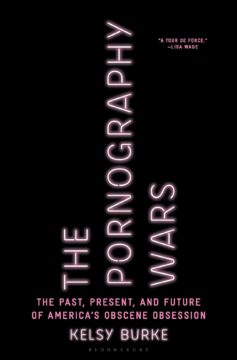Whitney Strub in the Los Angeles Review of Books:
 The United States’ most important smut-buster, Anthony Comstock, he of the muttonchop sideburns and perpetual scowl, was never at a loss for florid words. Describing the impact of pornography in 1883, he likened it to a cancer, one tending toward “poisoning the nature, enervating the system, destroying self-respect, fettering the will-power, defiling the mind, corrupting the thoughts, leading to secret practices of most foul and revolting character, until the victim tires of life, and existence is scarcely endurable.”
The United States’ most important smut-buster, Anthony Comstock, he of the muttonchop sideburns and perpetual scowl, was never at a loss for florid words. Describing the impact of pornography in 1883, he likened it to a cancer, one tending toward “poisoning the nature, enervating the system, destroying self-respect, fettering the will-power, defiling the mind, corrupting the thoughts, leading to secret practices of most foul and revolting character, until the victim tires of life, and existence is scarcely endurable.”
A century and a half later, Utah Republicans still agreed with him. They passed a resolution declaring pornography a public health crisis in 2016. At the heart of the resolution lay concern over “deviant sexual arousal” and the “risky sexual behavior” it purportedly facilitated — broadly defined terms but essentially Comstock’s nightmare vision of masturbation and promiscuity unto death.
When it comes to the politics of porn, time can appear a flat line of performative piety: conservatives have been making the exact same arguments about moral rot, bodily debilitation, and lust-driven crime since the object of their ire was lithographs and imported “fancy books.” This is the challenge Kelsy Burke confronts in her new study The Pornography Wars: The Past, Present, and Future of America’s Obscene Obsession — how do you make an interesting story out of the same tired tropes?
More here.
